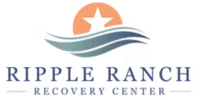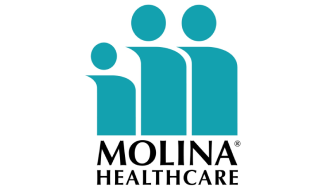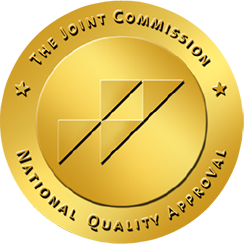
Spring Branch, Texas, United States
Ripple Ranch Recovery
Verified
Verified
This provider’s information has been quality-checked by Recovery.com’s Research Team for accuracy and completeness, including center verification through appropriate third-party organizations.
Joint Commission Accredited
The Joint Commission accreditation is a voluntary, objective process that evaluates and accredits healthcare organizations (like treatment centers) based on performance standards designed to improve quality and safety for patients. To be accredited means the treatment center has been found to meet the Commission's standards for quality and safety in patient care.
Provider's Policy
We're in-network with most major insurances. We encourage prospective clients to reach out to us for assistance with insurance verification, ensuring a smooth and efficient process for starting their journey toward recovery. Our dedicated team is here to help you navigate your insurance options.
Estimated Cash Pay Rate
The cost listed here ($30,000/30 days) is an estimate of the cash pay price. Center pricing can vary based on program and length of stay. Contact the center for more information. Recovery.com strives for price transparency so you can make an informed decision.
Highlights from the Center
Highlights
These highlights are provided by and paid for by the center.
Customized Treatment Plans
Holistic Approach
3+ Individual Sessions a Week
Trauma Treatment
About Ripple Ranch Recovery
Set on a serene Texas estate, Ripple Ranch offers detox, residential, and intensive outpatient care for addiction and co-occurring mental health disorders. Through customized treatment plans that blend science-backed therapies and holistic healing, clients reconnect with their purpose and create ripples of change that extend to the lives of those around them.
Receive a Diverse Set of Therapeutic Tools
Ripple Ranch blends time-tested therapies and innovative techniques into each client’s customized treatment plan. Clients participate in 1–2 hours of one-on-one counseling and 25–30 hours of group therapy each week. Cognitive behavioral therapy (CBT) and trauma-informed treatments like eye movement desensitization and reprocessing (EMDR) help reconfigure thoughts and behaviors for long-term success. Clients also engage in holistic practices like yoga and nutritional counseling to strengthen the body and promote inner peace.
Feel Safe, Welcomed, and Cared for
Set on over 20 acres of Texas countryside, Ripple Ranch is a peaceful campus. Detox and residential clients stay in a 40-bed, family-style facility featuring private or shared rooms with outdoor access, a pool, workout room, and an on-site chef. Clients enjoy nature views from every window, TVs in detox rooms and common areas, and flexible tech policies—all within a setting that supports deep rest, reflection, and around-the-clock supervised care.
Transition Smoothly to Independent Daily Life
Ripple Ranch is committed to supporting lasting recovery through robust aftercare services. Each client receives a tailored aftercare plan that may include outpatient services at Continuum Outpatient Center, medication management, lifestyle changes, and access to local support groups. They also organize community events and host weekly “Alumni and Friends” meetings to give past clients a space to reconnect, share, and draw strength from peers.
Read More

Insurance Accepted
Provider's Policy:We're in-network with most major insurances. We encourage prospective clients to reach out to us for assistance with insurance verification, ensuring a smooth and efficient process for starting their journey toward recovery. Our dedicated team is here to help you navigate your insurance options.
Resolve Trauma & Rediscover Hope
Ripple Ranch provides a safe, collaborative, and nurturing environment where clients can work through disruptive thoughts, raw emotions, and damaging physical expressions of deeply held trauma. Their personalized approach aligns care with therapies most suited to help clients reconnect with the world and restore a sense of safety and hope.
Treat Co-Occurring Disorders Simultaneously
Ripple Ranch helps clients suffering from a mental health disorder alongside a substance use disorder break the perpetual cycle of abuse and distress. With integrated care that treats mental health and substance use together, clients can uncover connections between disorders, develop healthier coping strategies, and make sustainable progress toward a more empowered life.
Treat the Whole Self, Not Just the Diagnosis
Ripple Ranch incorporates alternative therapies to nurture the physical, spiritual, social, and emotional well-being of each client. Equine therapy builds self-confidence, emotional awareness, and responsibility, while yoga and Tai Chi promote inner calm, physical vitality, and mindfulness. These and other holistic practices help clients move beyond their diagnosis toward a more grounded sense of health.
Stay on the Continuum of Care
Ripple Ranch understands that effective recovery requires ongoing care after detox and inpatient treatment. They help clients continue their healing journey by connecting them to their partner facility Continuum Outpatient Center for in-person or virtual intensive outpatient programming (IOP). This continued support provides structure, accountability, and tools to sustain progress and reduce chances of relapse.

Center Overview
Estimated Cash Pay Rate
Executives
Executive treatment programs typically directly support the needs of people who manage businesses and may provide flexible schedules and office space to allow work during treatment.
Men and Women
Men and women attend treatment for addiction in a co-ed setting, going to therapy groups together to share experiences, struggles, and successes.
Professionals
Busy, high-ranking professionals get the personalized treatment they need with greater accommodations for work, privacy, and outside communication.
Veterans
Patients who completed active military duty receive specialized treatment focused on trauma, grief, loss, and finding a new work-life balance.

Treatment Focus
This center treats primary substance use disorders and co-occurring mental health conditions. Your treatment plan addresses each condition at once with personalized, compassionate care for comprehensive healing.
Treatment
Specializations
Alcohol
Using alcohol as a coping mechanism, or drinking excessively throughout the week, signals an alcohol use disorder.
Benzodiazepines
Benzodiazepines are prescribed to treat anxiety and sleep issues. They are highly habit forming, and their abuse can cause mood changes and poor judgement.
Chronic Relapse
Consistent relapse occurs repeatedly, after partial recovery from addiction. This condition requires long-term treatment.
Co-Occurring Disorders
A person with multiple mental health diagnoses, such as addiction and depression, has co-occurring disorders also called dual diagnosis.
Heroin
Heroin is a highly addictive and illegal opioid. It can cause insomnia, collapsed veins, heart issues, and additional mental health issues.
Opioids
Opioids produce pain-relief and euphoria, which can lead to addiction. This class of drugs includes prescribed medication and the illegal drug heroin.
Prescription Drugs
It's possible to abuse any drug, even prescribed ones. If you crave a medication, or regularly take it more than directed, you may have an addiction.
Post Traumatic Stress Disorder
PTSD is a long-term mental health issue caused by a disturbing event or events. Symptoms include anxiety, dissociation, flashbacks, and intrusive thoughts.
Treatment Services
Day Treatment
In a PHP, patients live at home but follow an intensive schedule of treatment. Most programs require you to be on-site for about 40 hours per week.
Intensive Inpatient
The highest level of care, medically managed intensive inpatient services provides 24-hour nursing and physician care.
Detox
Detox fully and safely removes toxic substances from the body, allowing the next steps in treatment to begin with a clean slate.
Intensive Outpatient Program
In an IOP, patients live at home or a sober living, but attend treatment typically 9-15 hours a week. Most programs include talk therapy, support groups, and other methods.
Outpatient
During outpatient rehab, patients attend a structured treatment program while continuing to live at home.
Residential
In a residential rehab program, patients live onsite, with access to daily treatment and 24-hour care. An average stay is 30-90 days.
Approaches
Evidence-Based
A combination of scientifically rooted therapies and treatments make up evidence-based care, defined by their measured and proven results.
Holistic
A non-medicinal, wellness-focused approach that aims to align the mind, body, and spirit for deep and lasting healing.
Individual Treatment
Individual care meets the needs of each patient, using personalized treatment to provide them the most relevant care and greatest chance of success.
Medical
Medical addiction treatment uses approved medications to manage withdrawals and cravings, and to treat contributing mental health conditions.
Personalized Treatment
The specific needs, histories, and conditions of individual patients receive personalized, highly relevant care throughout their recovery journey.
Strengths-Based
Providers using a strengths-based philosophy focus on the positive traits of their patients, creating a positive feedback loop that grows confidence.
Therapies
1-on-1 Counseling
Patient and therapist meet 1-on-1 to work through difficult emotions and behavioral challenges in a personal, private setting.
Meditation & Mindfulness
A practiced state of mind that brings patients to the present. It allows them to become fully aware of themselves, their feelings, and the present moment.
Equine Therapy
Guided interactions with trained horses, their handler, and a therapist can help patients improve their self-esteem, trust, empathy, and social skills.
Eye Movement Therapy (EMDR)
Lateral, guided eye movements help reduce the emotional reactions of retelling and reprocessing trauma, allowing intense feelings to dissipate.
Medication-Assisted Treatment
Combined with behavioral therapy, prescribed medications can enhance treatment by relieving withdrawal symptoms and focus patients on their recovery.
Mindfulness-Based Cognitive Therapy
MBCT combines mindfulness practices—like meditation—with cognitive therapy techniques to help patients work through negative thought patterns.
Motivational Interviewing and Enhancement Therapy (MET)
This approach is based on idea that motivation to change comes from within. Providers use a conversational framework that may help you commit to recovery.
Reiki
Hand placements or light touches over the body aim to strengthen patients' life energy, guided by a Reiki therapist with expertise in this Eastern medicine.
Conditions We Treat
Schizophrenia
Schizophrenia is a serious mental health condition that causes hallucinations, delusions, and disordered thinking.
Grief and Loss
Grief is a natural reaction to loss, but severe grief can interfere with your ability to function. You can get treatment for this condition.
Anxiety
Anxiety is a common mental health condition that can include excessive worry, panic attacks, physical tension, and increased blood pressure.
Bipolar
This mental health condition is characterized by extreme mood swings between depression, mania, and remission.
Chronic Pain Management
Long-term physical pain can have an affect on mental health. Without support, it can also impact your daily life and even lead to addiction.
Codependency
Codependency is a pattern of emotional dependence and controlling behavior. It's most common among people with addicted loved ones.
Depression
Symptoms of depression may include fatigue, a sense of numbness, and loss of interest in activities. This condition can range from mild to severe.
Post Traumatic Stress Disorder
PTSD is a long-term mental health issue caused by a disturbing event or events. Symptoms include anxiety, dissociation, flashbacks, and intrusive thoughts.
Suicidality
With suicidality, a person fantasizes about suicide, or makes a plan to carry it out. This is a serious mental health symptom.
Trauma
Some traumatic events are so disturbing that they cause long-term mental health problems. Those ongoing issues can also be referred to as "trauma."
Substances We Treat
Alcohol
Using alcohol as a coping mechanism, or drinking excessively throughout the week, signals an alcohol use disorder.
Benzodiazepines
Benzodiazepines are prescribed to treat anxiety and sleep issues. They are highly habit forming, and their abuse can cause mood changes and poor judgement.
Chronic Relapse
Consistent relapse occurs repeatedly, after partial recovery from addiction. This condition requires long-term treatment.
Co-Occurring Disorders
A person with multiple mental health diagnoses, such as addiction and depression, has co-occurring disorders also called dual diagnosis.
Cocaine
Cocaine is a stimulant with euphoric effects. Agitation, muscle ticks, psychosis, and heart issues are common symptoms of cocaine abuse.
Drug Addiction
Drug addiction is the excessive and repetitive use of substances, despite harmful consequences to a person's life, health, and relationships.
Heroin
Heroin is a highly addictive and illegal opioid. It can cause insomnia, collapsed veins, heart issues, and additional mental health issues.
Methamphetamine
Methamphetamine, or meth, increases energy, agitation, and paranoia. Long-term use can result in severe physical and mental health issues.
Opioids
Opioids produce pain-relief and euphoria, which can lead to addiction. This class of drugs includes prescribed medication and the illegal drug heroin.
Prescription Drugs
It's possible to abuse any drug, even prescribed ones. If you crave a medication, or regularly take it more than directed, you may have an addiction.
Aftercare
Experience
Personal Amenities
Amenities
Special Considerations
Flexible technology policies
Centers with flexible technology policies allow professionals to stay in touch with work and give patients a greater sense of connection and normalcy.
Activities
Off-Site Activities
Off-Site Amenities
Professional Staff

Chrissy Clark
Executive Director
LCSW-S, EMDR

Randee Garcia
Admissions Manager

Jennifer Case
Director of Nursing
RN, CARN
Learn more about Ripple Ranch Recovery
We love hearing about your treatment experience
Help individuals and families seeking treatment by sharing your first-hand experience with this treatment provider. Review Guidelines.










































